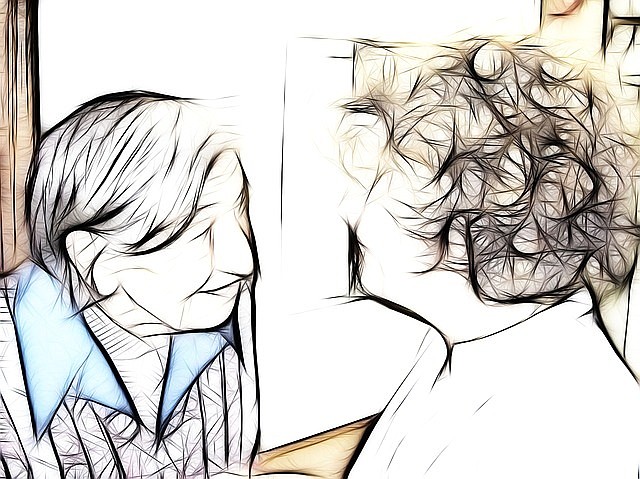Preventing Urinary Tract Infections and Dealing with Urinary Concerns
February 21, 2024 at 7:47 a.m.
 UW PhD candidate Kuan-Ching Wu, and former Engaging with Aging postdoctoral fellow Shaoqing Ge at the 2023 Gerontological Society of America conference
UW PhD candidate Kuan-Ching Wu, and former Engaging with Aging postdoctoral fellow Shaoqing Ge at the 2023 Gerontological Society of America conference
University of Washington (UW) School of Nursing PhD student Kuan-Ching Wu first became interested in urinary issues after looking at common health issues for people with dementia.
"For people with dementia, there are two main reasons they got admitted to [the] hospital. The first one is pneumonia, and the second one is urinary tract infections," said University of Washington (UW) School of Nursing PhD in Nursing Science candidate Kuan-Ching Wu.
Wu's dissertation work focuses on teaching caregivers how to prevent urinary tract infections (UTIs) and what to do if their loved one gets a UTI. Her hope is that this work could lead to fewer people with dementia needing to go to the hospital for UTIs.
For people with dementia, signs of UTIs can be harder to interpret than for people without dementia, like being more confused or upset than normal. They can’t always communicate telltale UTI symptoms like painful urination, so prevention is key.
Many factors can lead to UTIs, and some are out of our control, said Wu. Genetics, medications, and other medical issues can all change how likely you are to get a UTI. But there’s a lot that individuals and caregivers can do to lower UTI risk. Based on current research, Wu said two of the best prevention methods are drinking plenty of water and keeping the perineum clean – the area between the genitals and the anus.
Urinary health isn't only an issue for people with dementia. As we age, urinary concerns become more common. When interviewing older adults for a research study, Wu and her colleagues found that nearly half of the participants (15 of 29) said they had some kind of urinary concern. The study used the framework of Engaging with Aging, which was developed by retired UW School of Nursing faculty member Doris Carnevali and focuses on how older adults adapt to age-related changes. Wu and former Engaging with Aging postdoctoral fellow Shaoqing Ge, PhD, MPH, RN, shared study findings in a poster at the 2023 Gerontological Society of America conference, funded by the de Tornyay Center for Healthy Aging.
The most common types of urinary concerns that participants shared were needing to use the bathroom more frequently or more urgently. Since the study was taking place during COVID-19, that posed an additional challenge. There were fewer open public bathrooms, and many healthcare offices were closed. Some of the participants also mentioned that needing to urinate was affecting their sleep.
The older adults in the Engaging with Aging study made a variety of changes to address their urinary issues. Some planned ahead for using nearby bathrooms close to their destination when they left home. Others mentioned they adjusted their medications. For example, some medications are diuretics that make you need to urinate. Taking diuretics earlier in the day, when going to the bathroom wouldn't affect sleep, worked better for some.
Some participants shared that they spoke to friends or looked to the internet to learn more.
There are a number of good online resources with basic urinary health information. The CDC has general information about UTIs, including a few tips for preventing them. The National Institute of Aging has advice for general bladder health, with suggestions like diet adjustments and pelvic floor exercises to help strengthen bladder muscles.
“UTI can be preventable, and this research can positively impact vulnerable populations like older adults and individuals with cognitive impairments. This work improves quality of life for both patients and caregivers while reducing healthcare costs,” said Wu. “That’s why I work in this area.”





